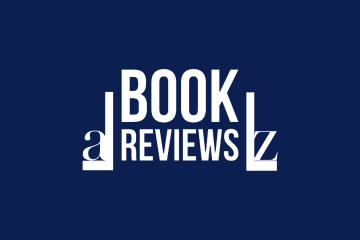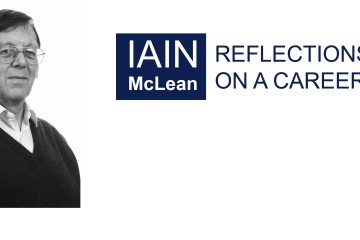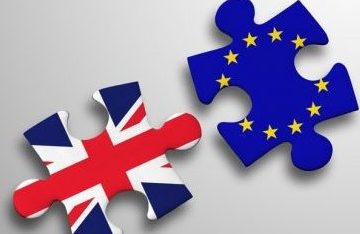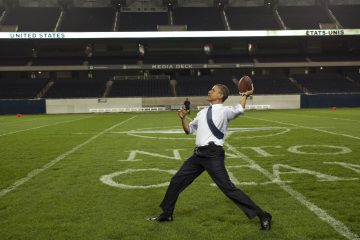
Brexit, voting, and political turbulence
Cross-posted from the Princeton University Press blog. The authors of Political Turbulence discuss how the explosive rise, non-normal distribution and lack of organization that characterizes contemporary politics as a chaotic system, can explain why many political mobilizations of our times seem to come from nowhere. On 23rd June 2016, a majority of the British public voted in a referendum on whether to leave the European Union. The Leave or so-called #Brexit option was victorious, with a margin of 52 per cent to 48 per cent across the country, although Scotland, Northern Ireland, London and some towns voted to remain. The result was a shock to both leave and remain supporters alike. US readers might note that when the polls closed, the odds on futures markets of Brexit (15 per cent) …

The Final Hundred Days: Conventions, Questions, and Conclusions
Fewer than 100 days. That is all that remains in what will, perhaps, go down as the most unpredictable American presidential election in at least a century. The candidates—Democrat Hillary Clinton and Republican Donald Trump—are the two most disfavored and distrusted aspirants for the office ever nominated by a major American political party. And yet, here they stand. An article I wrote in March attempted to forecast how Hillary Clinton’s campaign would seek to ‘win the narrative game’ by defining the election as a choice between unity and division, love versus hate, hope over fear, and the like. By any objective comparison of the 2016 Republican and Democratic National Conventions, it seems that Mrs Clinton and the Democrats are well …

Background Check on the UN
What is the United Nations? What does it do and how does it do what it does? Together with Sam Daws, Natalie Samarasinghe has recently co-edited a leading eight-volume reference text on the United Nations – The SAGE Major Work on the United Nations. It is dedicated to the structures and the role of the UN over the course of its history and at the present juncture. In this Q&A, Natalie Samarasinghe, Executive Director of the United Nations Association (UNA-UK), responds to the questions of Oxford graduate Genevieve Woods.

Scotland After the Independence Referendum: An interview with Jim Gallagher
In this interview, Jim Gallagher discusses the political and constitutional issues arising from the 2014 Scottish Independence Referendum. Professor Jim Gallagher was senior advisor to the Prime Minister on devolution strategy (2007-2010) and was Secretary of the Calman Commission on Scottish Devolution. He is Visiting Professor at the University of Glasgow and Associate Member at Nuffield College, Oxford. An expert advisor to the Scottish Parliament, he was appointed to advise the committee considering the Scotland Act 2016. (The interview was recorded before the UK’s EU Referendum on 23 June 2016.)

The EU Negotiation: Going for Win-win-win
The optimum way for the United Kingdom to exit the European Union is by leading a reform of the European Economic Area (EEA). Could this deliver what the Leave voters want? If it could, why would the other 27 EU members ever agree to it? I argue that it could and they may. This outcome is by no means certain and, as in any negotiation, we need a second-best alternative in reserve, but we can only achieve the optimum answer by setting out now to get it. Win-win-win Prime Minister Theresa May has been very clear about adhering to 52% of the electorate that voted for Brexit: she will lead the UK out of the EU. She has also vowed …

Primaries as Sports and Spectacle: Sports Metaphors in Twenty-First Century Presidential Primary Debates
‘The Brawl Begins’, an article about the 2016 primaries in The Economist provides the most overt manifestation of how a discourse of sports has permeated contemporary political reporting. Describing elections as a “jaw-dropping spectacle” or referring to the Iowa caucuses as the “opening round” in a political boxing match, a prime example of horse-race journalism, is particularly prevalent in presidential primary elections. This is due to the lengthening of the primary period and the truism that the “newsworthiness of what a candidate says about public policies is limited” because “once a candidate makes known his position on an issue, further statements concerning that issue decline in news value”.[1] In these elections, televised debates – which Craig Allen Smith compares to the Super Bowl, …

Will It Kill Us Or Make Us Stronger? How Europe’s Media Covered Brexit
Europe’s newspapers were overwhelmingly negative towards Britain’s vote to leave the European Union, according to a review of the press in thirteen countries in the week after the referendum. Most articles presented the view that Brexit was bad for the EU, would damage their own nation’s interests and would also be bad for Britain. Of the articles that discussed the possibility of following Britain out of the EU, the majority concluded it would not be in their country’s interest to do so. A strong theme was that Brexit highlighted problems within the EU. However the majority view, across all political opinions, was that it should be reformed rather than be allowed to fail. Most also agreed the EU would be worse …

Scotland, Ireland, and Brexit: what history tells us
The BBC published maps of the Remain and Leave votes on 23 June. The Remain map tells us lots of fascinating things, but this post will focus on the Celtic fringe and the historical context for why people may have voted the way they did. Most of Wales is like most of England, with the metropolitan city (Cardiff) voting Remain and the rest of the country mostly for Leave. Note, however, that there is a little dark (pro-Remain) strip in the north and west. The patterns of settlement laid down centuries ago by the English conquest of Wales still leave their mark as that strip is both Welsh-speaking and Remain-leaning. Welsh speakers take their political cues from Plaid Cymru, which …









